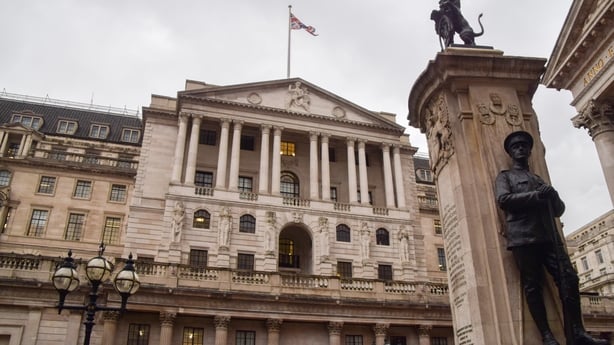Bank of England Governor Andrew Bailey said today that it was possible the central bank had already come to the end of its rate-rising cycle, although it was too soon to be sure about the future path of policy.
The Bank of England raised interest rates to 4% last month but signalled it was close to ending a run of increases which began in December 2021.
This came as some of the inflation pressures in Britain's economy showed signs of easing.
"At this stage, I would caution against suggesting either that we are done with increasing Bank Rate, or that we will inevitably need to do more," Bailey said in the text of a speech at an event organised by public relations firm Brunswick Group, which was closed to media.
"Some further increase in Bank Rate may turn out to be appropriate, but nothing is decided," Bailey added.
Following Bailey's remarks, financial markets slightly trimmed bets on the likelihood of a quarter-point rate rise on March 23 after the bank's next Monetary Policy Committee meeting, and now see a 5% chance that the BoE will keep rates on hold.
However, markets still see rates a roughly 70% chance that rates will peak at 4.75% in the second half of this year.
"It is clear from Mr Bailey's speech that the Committee is placing more emphasis on the substantial tightening already delivered and would like to call time on its hiking cycle as soon as it feasibly can," said Samuel Tombs, chief UK economist at Pantheon Macroeconomics.
Tombs expects rates to stay on hold this month.
Andrew Bailey said that the economy had developed largely as expected since the Bank of England raised rates on February 2.
"Inflation has been slightly weaker, and activity and wages slightly stronger, though I would emphasise 'slightly' in both cases," he said.

Bailey also highlighted how the central bank shifted its language in February, when it said further tightening would be required if there was evidence of more persistent inflation pressures.
One member of the bank's Monetary Policy Committee, Catherine Mann, said last week that it was too soon to say that the risks posed by last year's surge in inflation had eased and that the central bank should continue to raise borrowing costs.
But two MPC members - Swati Dhingra and Silvana Tenreyro - voted in February to pause the rate hikes.
UK consumer price inflation hit a 41-year high of 11.1% in October and remains in double digits, though the central bank forecasts it will fall sharply in the second half of this year.
Industry data published this week showed British grocery inflation hit 17.1% in the four weeks to February 19, a record high.

